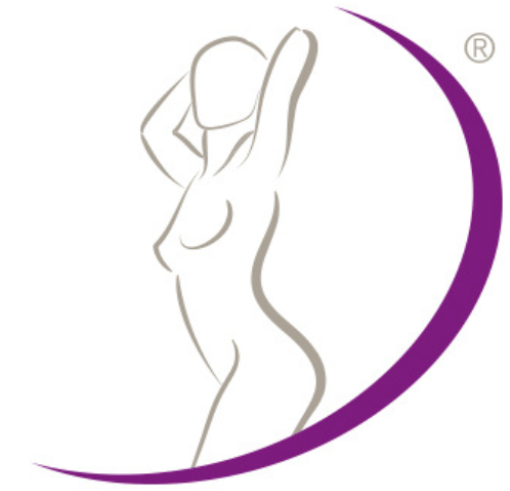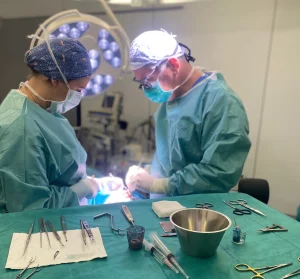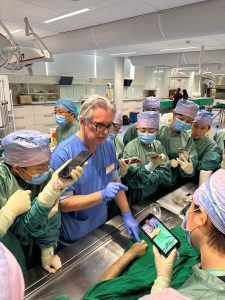Plastic Surgery is on the rise
The goal of Plastic and Aesthetic Surgery is not to completely stop time or to make someone look 20 years younger, but to be the best version of yourself at your current age.
That’s the approach of Dr. Marc Nelissen. He has been a Plastic Surgeon since 2001 and started the Global Care Clinic in Zolder more than 10 years ago, previously known as Level4 Clinic at Quartier Bleu in Hasselt. The Belgian private clinic for Plastic and Aesthetic Surgery now receives patients from both home and abroad.
Sterck Lifestyle had an open and honest conversation with him.
Realistic expectations
Global Care Clinic offers a complete range of surgical and non-surgical aesthetic treatments, with a special focus on breast augmentations, anti-aging, skin rejuvenation, facial surgery, and body treatments. The clinic is located in the green surroundings of the well-known Zolder race circuit.
“In our clinic, we hold consultations three days a week. The rest of the days, I perform surgeries,” explains Dr. Marc Nelissen.
“It’s important to make every patient aware of whether their expectations are realistic or not. As a plastic surgeon, you build a relationship of trust with your patient. In such a relationship, you sometimes have to make decisions on behalf of the patient. My goal is to listen carefully between the lines to understand what they truly desire, and adjust when their expectations are unrealistic. Occasionally, you also have to play the role of ‘psychologist’. My consultants and I always check if the patient wants surgery for the right reasons.
Factors like pressure from social media or even a partner are absolutely the wrong motivations, and I see it as my duty to communicate that to the patient. In fact, I may even refuse to treat someone in such cases. If someone wants too much, like a ‘frozen look’ or the infamous ‘duck lips’ then I happily step away. A plastic surgeon also has his rights (laughs).
We are known for natural results that don’t stand out to others. It’s also increasingly accepted that people work on their bodies.”
1. LESS SHYNESS
STERCK: People are more concerned with themselves and their bodies than before?
Marc Nelissen: “That is absolutely true. And you can see this even during the pandemic: we are all living reasonably well. Many people have made efforts in the past year to turn their homes into a real cocoon and paradise. But everyone also has their own temple: our body. Why not give it attention? In Belgium, there is still a bit more shyness than, for example, in the Netherlands, where many of my patients come from. But you can clearly see an evolution. Belgians generally prefer that no one knows they are using plastic surgery. They want to hear that they look much better without anyone seeing or saying that they’ve had a facelift.”
STERCK: What treatments are most in demand?
Nelissen: “Botox is the most common non-surgical treatment. The demand increases every year, worldwide. We do it in such a way that even the partner won’t notice, unless you tell them. We always see the patients again after a few weeks. I want to hear their feedback. First, to assess what you can do and know as a doctor. But, most importantly, to hear how the patient experiences it, as that can vary. I also give workshops in Amsterdam for colleagues from all over the world, and I’m always happy to share honestly what daily practice is really like.”
2. PERSONAL CARE
STERCK: What do you consider the essence of a successful treatment or procedure?
Nelissen: “Tailored care in a pleasant atmosphere and in a safe way. That’s what it’s all about. People want to focus on their body, be themselves, reward themselves, and feel good in their environment. That’s the essence. The entire clinic is built around offering this personal care. I don’t push anyone, and I might turn away about 40% of people because they come in with the wrong expectations. If you’ve never done anything for your body your entire life and you want to continue on the same path after a facelift as if you’re 20 years younger, that can’t happen. I like to compare it to a garden. If you’ve never wanted a garden because it requires maintenance, you can’t suddenly create one and then ignore it for ten years. It’s the same with your body. We like to give people time to think and let it sink in. We let them look online or hear from others. If they still feel aligned with what we’re saying, then we can start. People really appreciate that. As a surgeon, you’re trained to think you can do anything, but you also need to dare to say no. And you must be able to admit that you’re better at some things and less so at others.”
3. BREAST SURGERY
STERCK: What areas do you primarily focus on?
Nelissen: “I perform many breast surgeries because for many women, it strongly influences their sense of identity and well-being. A woman who has had three children, and whose body you can restore to how it was before… That woman often feels more feminine and sexy again. Of course, without going overboard. Often, the partner doesn’t need it, but later concludes that he gets a very different, more confident woman back. While the outside world doesn’t need to know. That’s what I find the most beautiful. Many women who have been struggling with depression for years can feel reborn with a one-hour breast surgery. I don’t follow the trend of exaggerated breasts or lips. I want to be able to sit at a table with the people I treat afterward without having to be ashamed that I treated them.”
4. MAINTAINING ETHICS
STERCK: Do you see any particular trends?
Nelissen: “The number of non-surgical procedures has increased by 30% each year over the past ten years. We’re talking about botox, fillers, skin treatments, skin rejuvenation… Also with the help of medication. In surgery, the top three procedures remain fairly constant: breast augmentations, liposuction, and eye and nose corrections. I perform far fewer liposuctions than ten years ago because I often found that people had unrealistic expectations. They think they will become tighter, but that never happens. Often, it’s better for them to wait a little longer because excess skin needs to be removed afterward. These patients then go elsewhere to have the procedure done, but years later, they come back to say I was right. They didn’t lose weight and lost their money instead.”
STERCK: There are now many parties offering anti-aging treatments?
Nelissen: “You need the expertise for it, but also the time to listen to a patient. If you just add it to your practice and try to help everyone, you have a problem. Some general practitioners take the time, and then it works perfectly. However, people often just want to do what the patient asks and treat everyone. A patient can also easily shop around in Belgium. If someone doesn’t want to perform a procedure, the patient will find someone else. I believe as a doctor, you need to maintain ethics. The patient needs to feel good, but so do you. People often need coaching. A facelift? Maybe you should first address the skin with a few treatments. Only then can you consider if surgery is really necessary.”
STERCK: Do you work with a whole team?
Nelissen: “On surgery days, we work with eight to ten people. On consultation days, we have about five staff members: three assistants, one nurse, and myself. We perform surgeries weekly on one or two fixed days in two operating rooms. We can operate for more than twelve hours. Thanks to good organization, we can do in one day what used to take a week in the hospital. We only treat healthy people, and they must also walk out healthy. The treatment or procedure is always done as an outpatient, and we provide anesthesia tailored for day hospitalization. At other places, they often use much deeper anesthesia, but this increases the risk of post-operative bleeding and thrombosis. Here, the patients are in a deep, comfortable sleep, breathing on their own, and we provide pain relief. I also numb each area of the body I operate on. Men who come for their eyes or eyebrows sometimes have a terrible fear of anesthesia or pain. All of them wake up and feel nothing. People don’t believe it. I think 99% of patients who have breast augmentation wake up painlessly.”
5. PROCEDURES FOR MEN
STERCK: Is plastic and aesthetic surgery no longer taboo among the male audience?
Nelissen: “Men primarily come for eyelid surgery, skin treatments, and botox. These are minor procedures that give them a calmer appearance without looking more feminine. That last one is something men are especially afraid of. Nose corrections and liposuction are also common procedures for men. What’s interesting is that once a man takes the step, they usually offer complete trust, which is nice. However, there are still some taboos among the male audience. But why is going to the barber, buying new clothes, working out, and doing yoga all seen as normal? Meanwhile, here you can have a treatment, sometimes on a smaller budget, without your surroundings knowing. Our strength is that we offer a very good price-quality ratio, and people even come from far away to Zolder for it. And they can park right in front of the door with complete privacy.”
6. OPERATION INFRASTRUCTURE AVAILABLE
STERCK: In addition to plastic and aesthetic surgery, are other medical disciplines increasingly finding their way to the Global Care Clinic?
Nelissen: “That’s correct. The Covid-19 crisis resulted in certain disciplines having little or no operating time in hospitals. Furthermore, the European hospital landscape is undergoing significant development. The traditional hospital as we know it will continue to play an important role in our healthcare system, but like in other countries (e.g., the Netherlands), there will likely be more room for treatments outside of the general hospital, allowing them to focus on the core business of treating the sick patient. Both patients and healthcare providers are calling for this. Patients want more personalized care, personal contact, efficient service, small-scale treatment, and affordable healthcare. For medical professionals, it is often more attractive, especially for the treatment of non-sick patients, to work outside the traditional hospital environment. That’s why Global Care Clinic offers healthcare professionals the opportunity to rent operating time. A tailor-made plan is created for each healthcare professional, as their needs will always vary.”
7. STRENGTHS OF GLOBAL CARE CLINIC
- Versatile and modern infrastructure
- Two fully equipped operating rooms (S2 & S3) with pre-anesthesia room and a spacious recovery area with 6 beds.
- Strict certification by the Belgian Society for Private Clinics
- Separate exit for postoperative patients
- Spacious bed lift
- Anesthesiologist
- Secretarial service
- Hotel service nearby
- Good accessibility: near the Lummen interchange (junction of E314-E313)
- Ample free parking
- Discretion and privacy guaranteed by its location in a wooded, residential area
Do you have any questions?
Would you like to discuss whether this treatment could be right for you?
Then make your non-binding appointment for a consultation at our clinic.



